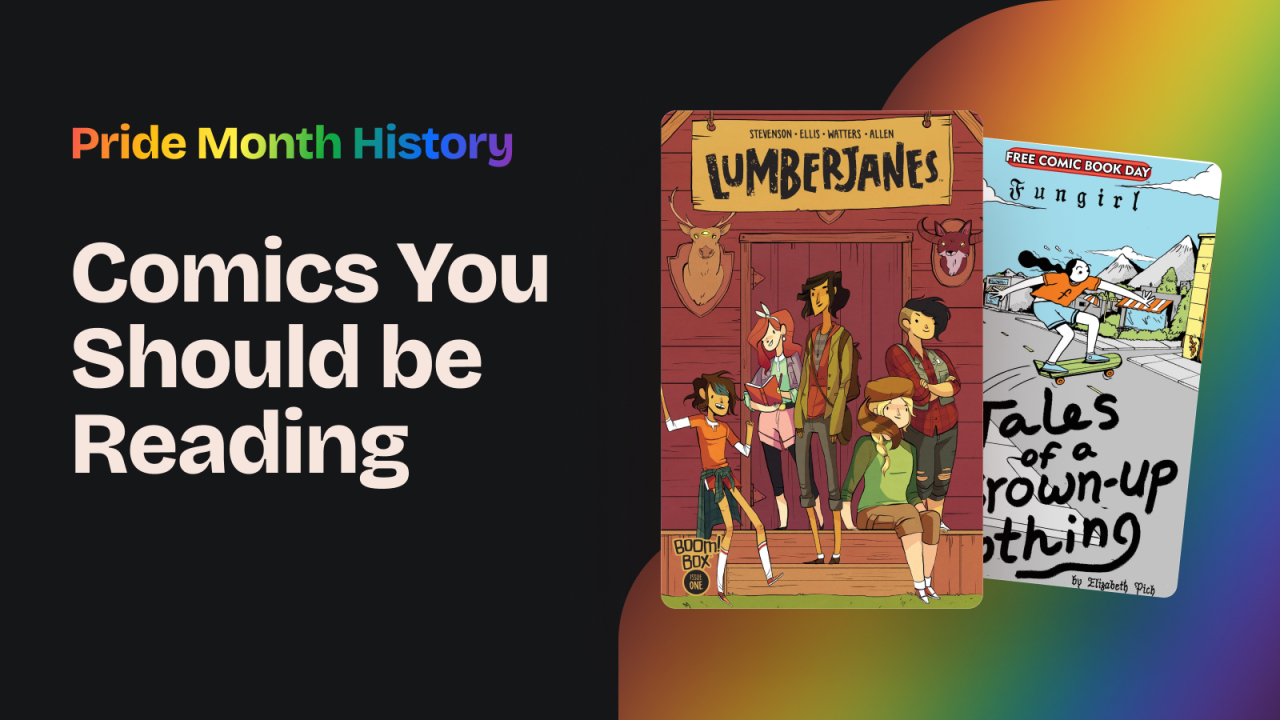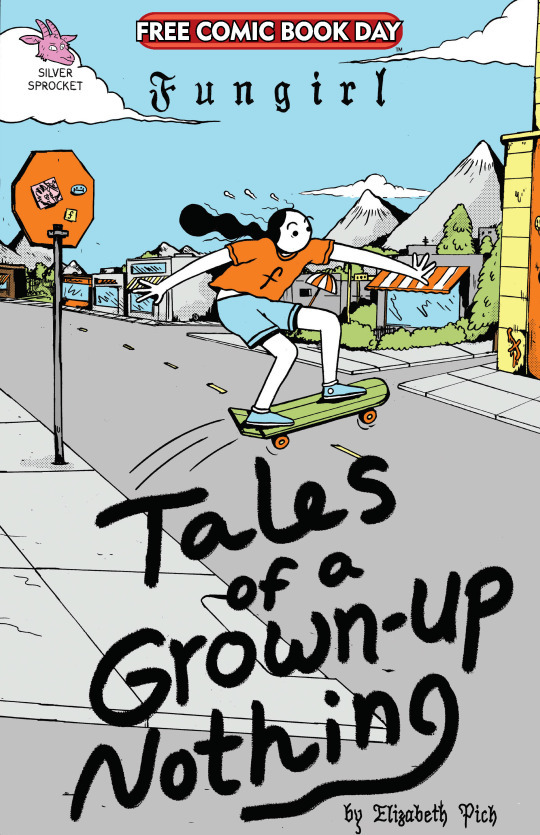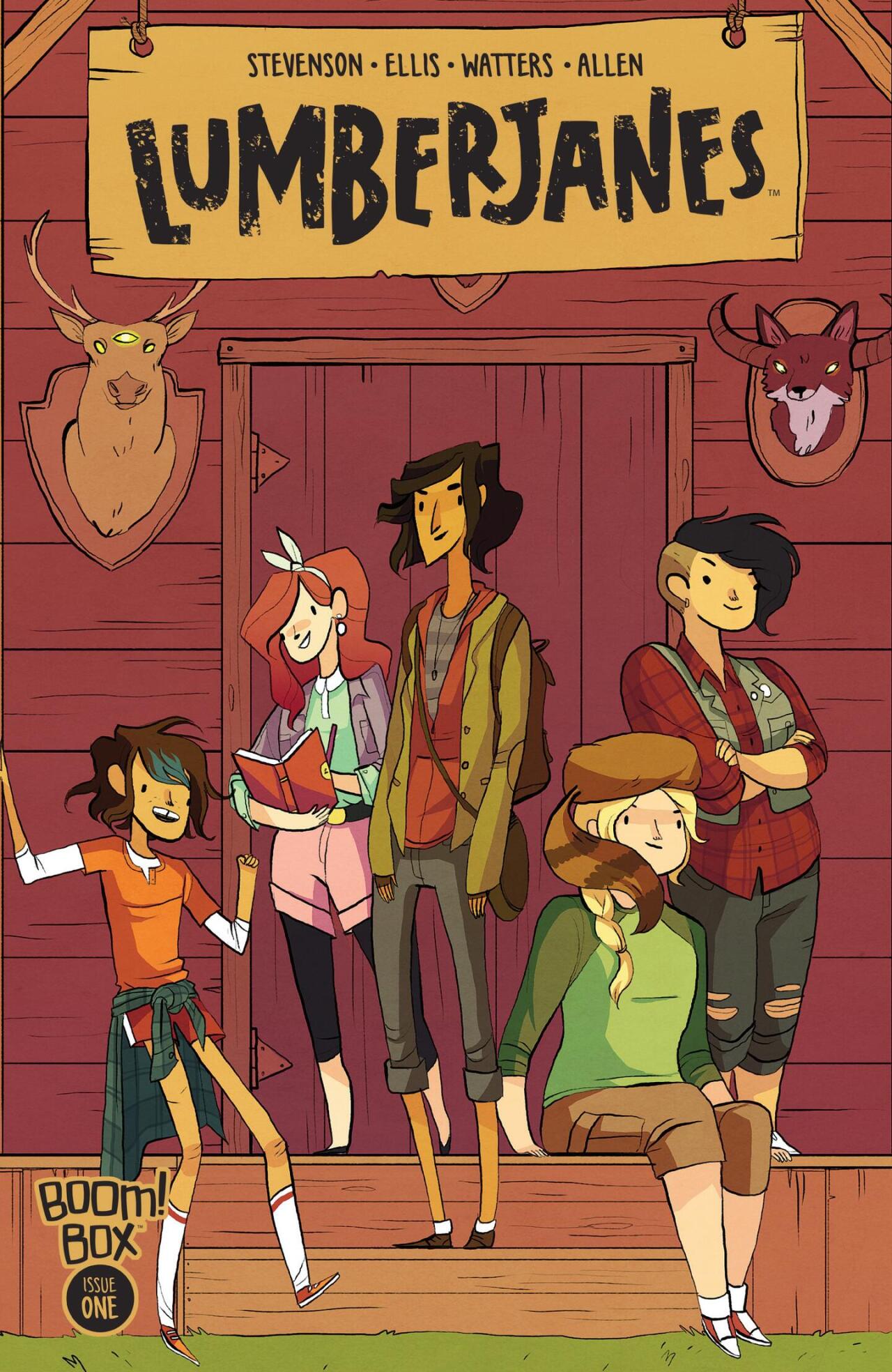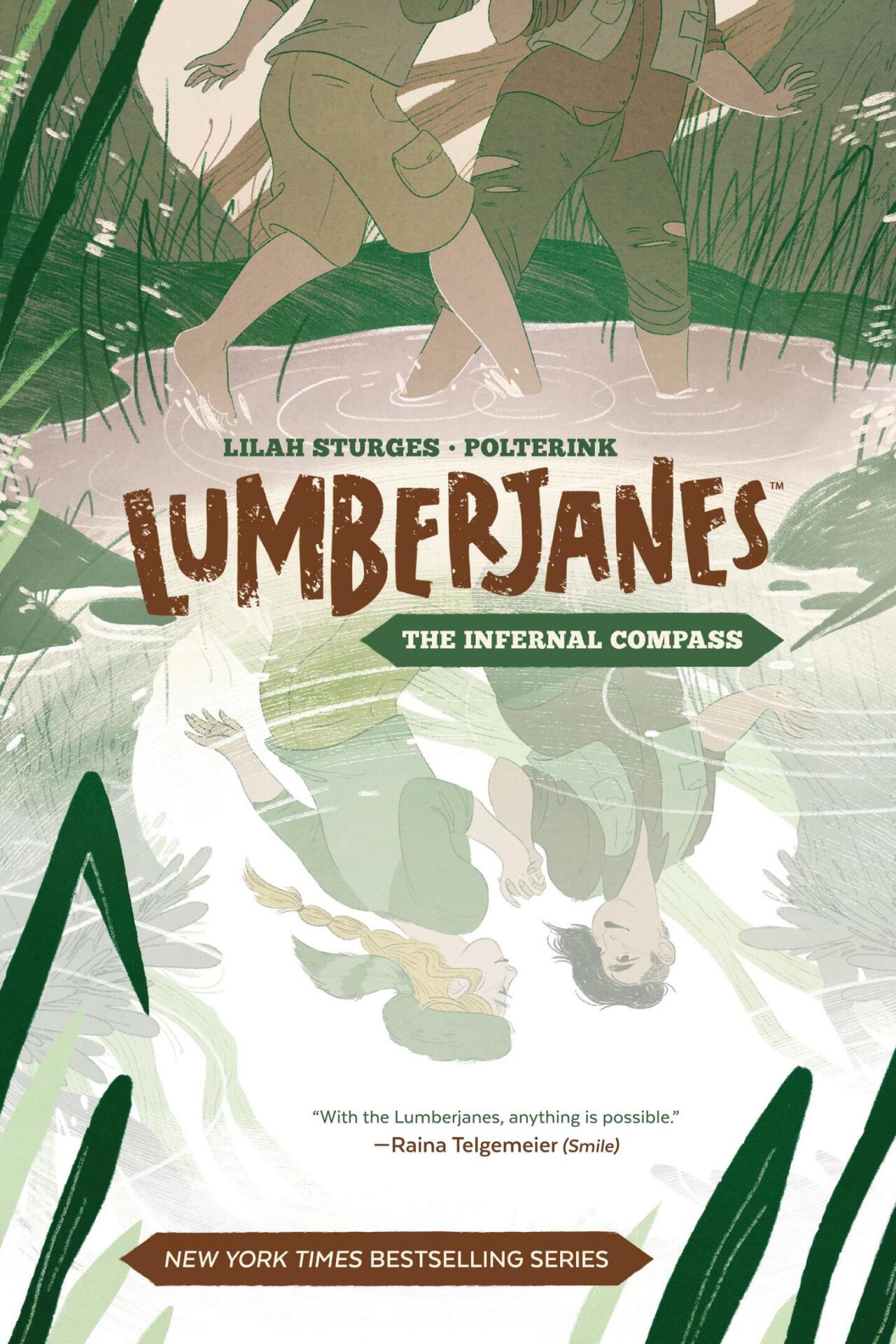Last week for our Pride Month history series, we looked at two impactful creators in the Queer comics space, Shou Arai and Alison Bechdel. Today we'll be discussing LGBTQ+ comics that you should be reading, and taking a look into some books that have been banned across libraries in the United States due to their queer content.
Kicking off this article are two books that I have found enjoyment in reading, FunGirl and LumberJanes. Fungirl is a story about a girl, Fungirl, just trying to get her life together, watching it fall apart, and embracing the chaos of it all. I think chaos is a great way to describe the vibe of this book, as I found it unpredictable in a fun, page-turning "what else happens in this book" kind of way. I really hope there is more to this book, it's relatable in a strange fashion, but I got a lot of laughs out of it.
I think books like this are important so that we don't take ourselves too seriously in life, and are willing to take everything that happens to us, or because of us, with grace. Fungirl also felt like a reflection of goofy and bizzare intrusive thoughts. So aside from the queer representation within Fungirl and her ex-girlfriend, I found it fun to read just on its own strange merit.
With that, let's look into another comic that's a bit more relaxed, but has had its share of controversy, Lumberjanes fom Boom! Studios.
The comic series that follows the adventures of five friends—Jo, April, Molly, Mal, and Ripley—at a summer camp called Miss Qiunzella Thiskwin Penniquiqul Thistle Crumpet's Camp for Hardcore Lady Types. The girls encounter supernatural creatures, ancient mysteries, and mythological challenges, all while forming a strong bond of friendship and teamwork. Created by Shannon Watters, Grace Ellis, Noelle Stevenson, and Brooklyn A. Allen, the series is celebrated for its diverse characters and positive representation including queer themes, including a trans character. Lumberjanes blends some humor, adventure, and heart, making it a beloved and critically acclaimed comic for all ages.
However, it has also experienced challenges and bans in some libraries due to its use of LGBTQ themes, specifically in "The Infernal Compass" special. To quote an article from the Comic Book Legal Defense Fun (CBLDF):
In summer 2019, an event with author and transgender rights advocate Lilah Sturges was canceled just two hours before she was scheduled to talk about Lumberjanes: The Infernal Compass at Leander Public Library in Texas. The city gave inadequate reasons, claiming temporary changes to library event policies, as well as the lack of a previously undiscussed background check. CBLDF led an immediate effort to reverse the cancelation, which a local news outlet confirmed is likely an act of discrimination against Sturges and the LGBTQ+ community. This is the second recent incident of identity censorship in Leander, following a June ban on Drag Queen Story Hour. This case is ongoing.
In some years, upwards of 25% or more of the banned books in any given year are due to LGBTQ themes within books. With the motion to remove more books from library shelves increasing in the last few years, it's become a real concern if the people that these books are often made for, teens and young adult readers, will have access to them. The most challenged book in recent years is another LGBTQ book, Gender Queer from Maia Kobabe, published by Oni Press.
Published 2019, Gender Queer is a personal memoir about their journey of self-discovery, and it has topped the most-banned book list for three years. The graphic novel addresses issues of gender and sexuality, aiming to resonate with adolescents facing similar uncertainties. Its candid discussion has placed it at the heart of a moral panic fueled by anti-trans and anti-LGBTQ sentiment from activist groups like “Moms for Liberty.”
The focus on teen sexuality in graphic novels extends beyond Gender Queer, with many memoirs and personal reflections tackling similar themes. Mike Curato's award-winning 2020 memoir Flamer from Henry Holt, explores his experiences as a gay Filipino Boy Scout and addresses mental health and bullying, has also faced censorship. Book banners in states like Oklahoma, Texas, and Utah targeted Flamer, and in November 2023, the Marietta, Georgia school board decided to remove it from their middle school library.
This trend highlights the ongoing challenges faced by creators addressing LGBTQ+ themes in their work. Banned books are an ever evolving list, so research was done to check what was on what list, when, and why. That's why it's more important than ever that we acknowledge the changes in society.
Here's a list of resources used for today's article, as well as other links to lots of lists of recommended queer reading:
-
Banned & Challenged Comics by CBLDF
-
10 Comics Banned In 2023 by CBR
-
The Censors Came For Comics In 2023 by Forbes
- Commonly Banned Comics @ Cal State LA
- The Censorship of LGBTQ+ Comic Books with Maia Kobabe and Mike Curato
-
Queer comic creators talk their hopes, helps (and fave new reads!) for Pride from PopVerse
-
7 LGBTQ comic artists share how they navigate their identity from The Washington Post
-
20 Essential Queer Comics from the Past Five Years by Publishers Weekly
See you again soon, and happy Pride Month 2024 from all of us here at GlobalComix!



